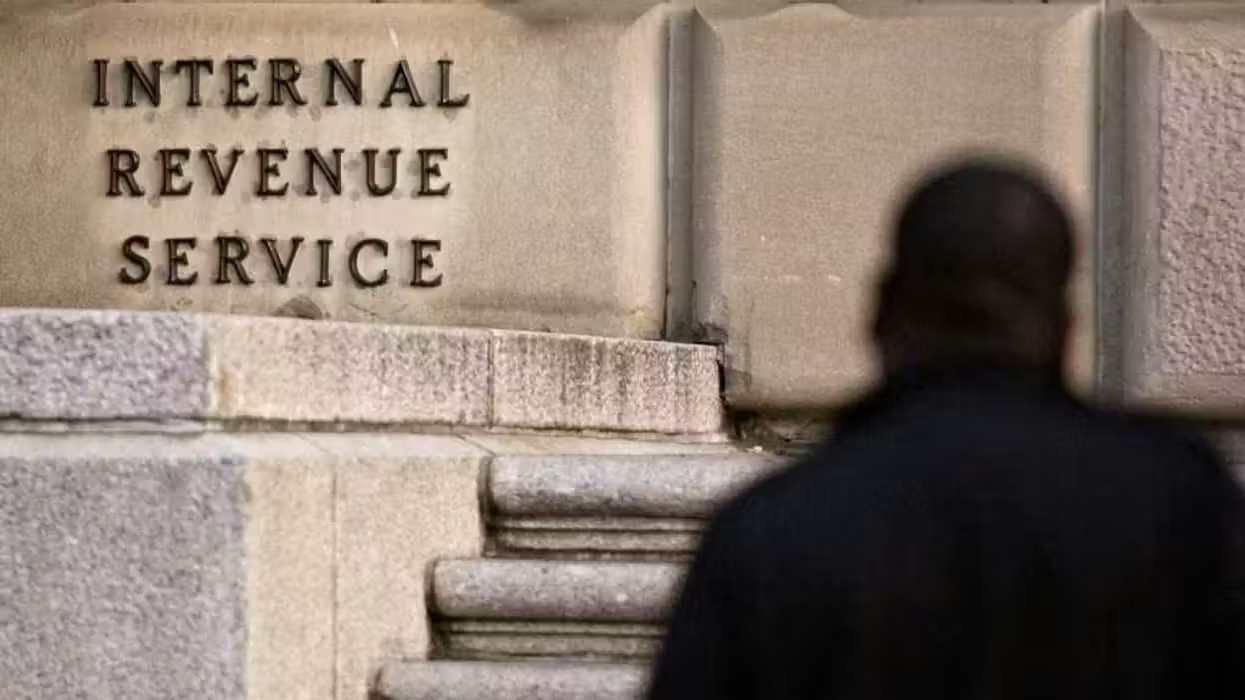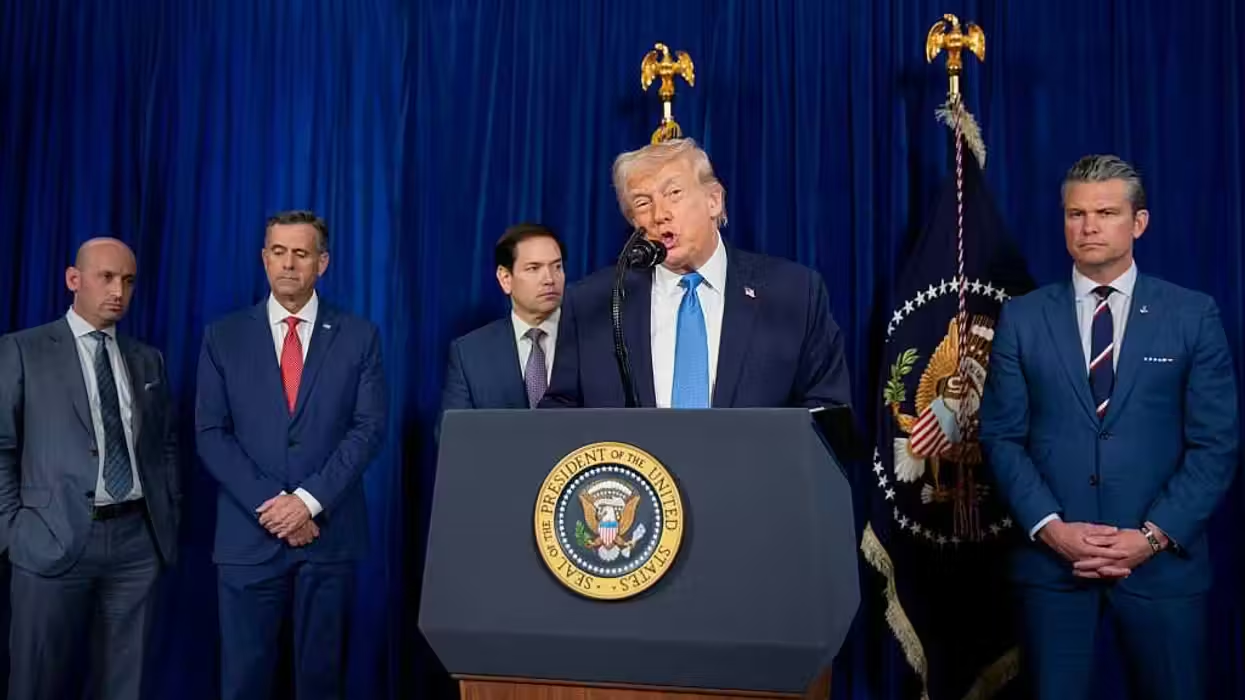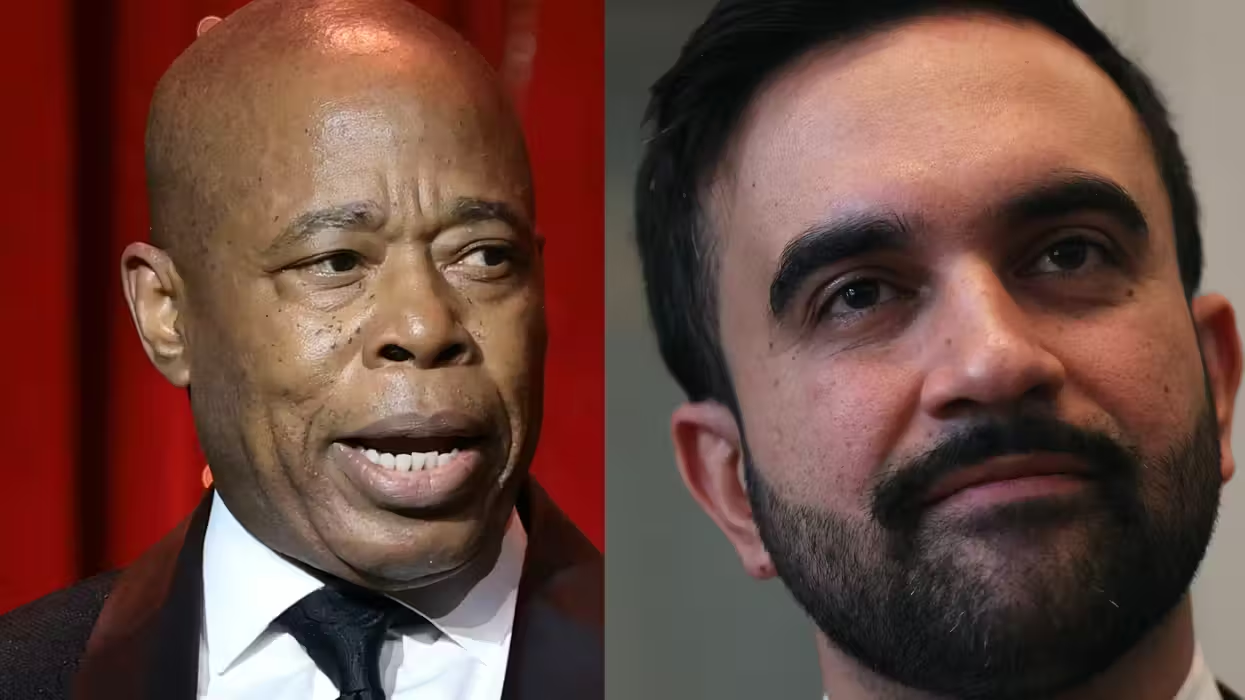The case over the new health care law's contraceptive mandate argued before the Supreme Court should be viewed in terms of whether the government should be allowed to pick winners and losers, an attorney for the plaintiffs told TheBlaze after Tuesday's arguments.
 Pro-life activists supporting Hobby Lobby pray outside the Supreme Court March 25, 2014 in Washington, DC. The Supreme Court will hear arguments today in Sebelius v. Hobby Lobby Stores, Inc if for profit corporations can refuse to cover contraceptive services in their employee's healthcare for religious beliefs. AFP PHOTO/Brendan SMIALOWSKI
Pro-life activists supporting Hobby Lobby pray outside the Supreme Court March 25, 2014 in Washington, DC. The Supreme Court will hear arguments today in Sebelius v. Hobby Lobby Stores, Inc if for profit corporations can refuse to cover contraceptive services in their employee's healthcare for religious beliefs. AFP PHOTO/Brendan SMIALOWSKI
“One way to talk about it would be, 'Does the government get to pick the winners and the losers?” said Adele Keim, counsel for the Becket Fund for Religious Liberty, which represents Hobby Lobby in the case. “When they admit that the churches, the hospitals and the Greens and Hobby Lobby all have the same beliefs, why should the government get to choose whose conscience is protected and who has to pay millions of dollars in fines? That seems unfair.”
The high court heard arguments about whether the federal government can require private employers to buy employee insurance plans that cover certain methods of contraception that violate employers' religious beliefs.
Two family-owned companies, the Oklahoma-based craft chain Hobby Lobby and the Pennsylvania-based Conestoga Wood Specialties Store Corp., say paying for these drugs violates their religious freedom. The Green family is the owner of Hobby Lobby. The Hahns family owns Conestoga Wood. Lower courts have split on the decision, ruling in favor of the Green family and against the Hahns family.
The Obama administration maintains that it's a matter of women's rights to have equal access to contraception. Last year, senior Obama adviser Valerie Jarrett said the case was about corporate entities trying to “seize a controlling interest over the health care choices of women.”
That has never been the case, said Kiem, who has represented the Green family and was in the courtroom during oral arguments.
“The Greens want out of their employees health care decisions,” Kiem told TheBlaze. “The Greens don't want to pay drugs and devices. They are trying to get out of employees health care decisions and its the government that is dragging them back in.”
Keim was joined by Greg Scott, vice president for communications at Alliance Defending Freedom, the organization representing the Hahn family and Conestoga Wood Specialties, at the conservative Heritage Foundation think tank after the arguments ended.
Scott said the businesses in the case object to covering the cost only of abortion-inducing drugs.
“They cover 16 of the 20 drugs that are demanded under this mandate,” Scott said. “So really what the government is mandating is that it's going to sell out freedom for four pills. You'll hear over and over again from the left, NARAL [Pro-Choice America], these drugs do not cause abortions. Well FDA labeling begs to differ.”
Scott said this was not the case the government expected.
“Interestingly of course, when the mandate was first implemented and all the discussion began, what the Obama administration tried to do was make it the old Catholic bishops against women and their birth control,” he said. “It was really inconvenient that a Mennonite and an evangelical client are at the Supreme Court right now. So that narrative is off the table. But it still has been the boss controlling whether women get control whether women get birth control or not.”
He said outside the court, he found it ironic that demonstrators in favor of the mandate holding signs that said “99 percent of women use birth control.”
“This is Planned Parenthood and NARAL saying this,” he said. “So access is apparently not a problem.”
The heart of the debate in Hobby Lobby’s case is the Religious Freedom Restoration Act of 1993, a law that states that individual religious beliefs cannot be “substantially burdened” by the government unless there is a compelling interest on the part of the government.
But since Hobby Lobby is a corporation and not a person, there’s a debate that extends well beyond the conversation about contraception. The court is being faced the a question of whether businesses and companies owned by individuals who hold religious views should be covered under the bounds of this law.
—
Programming note: Watch Becket Fund for Religious Liberty counsel Joshua Hawley on TheBlaze TV's "Real News" Tuesday at 6 p.m. ET

 Pro-life activists supporting Hobby Lobby pray outside the Supreme Court March 25, 2014 in Washington, DC. The Supreme Court will hear arguments today in Sebelius v. Hobby Lobby Stores, Inc if for profit corporations can refuse to cover contraceptive services in their employee's healthcare for religious beliefs. AFP PHOTO/Brendan SMIALOWSKI
Pro-life activists supporting Hobby Lobby pray outside the Supreme Court March 25, 2014 in Washington, DC. The Supreme Court will hear arguments today in Sebelius v. Hobby Lobby Stores, Inc if for profit corporations can refuse to cover contraceptive services in their employee's healthcare for religious beliefs. AFP PHOTO/Brendan SMIALOWSKI






